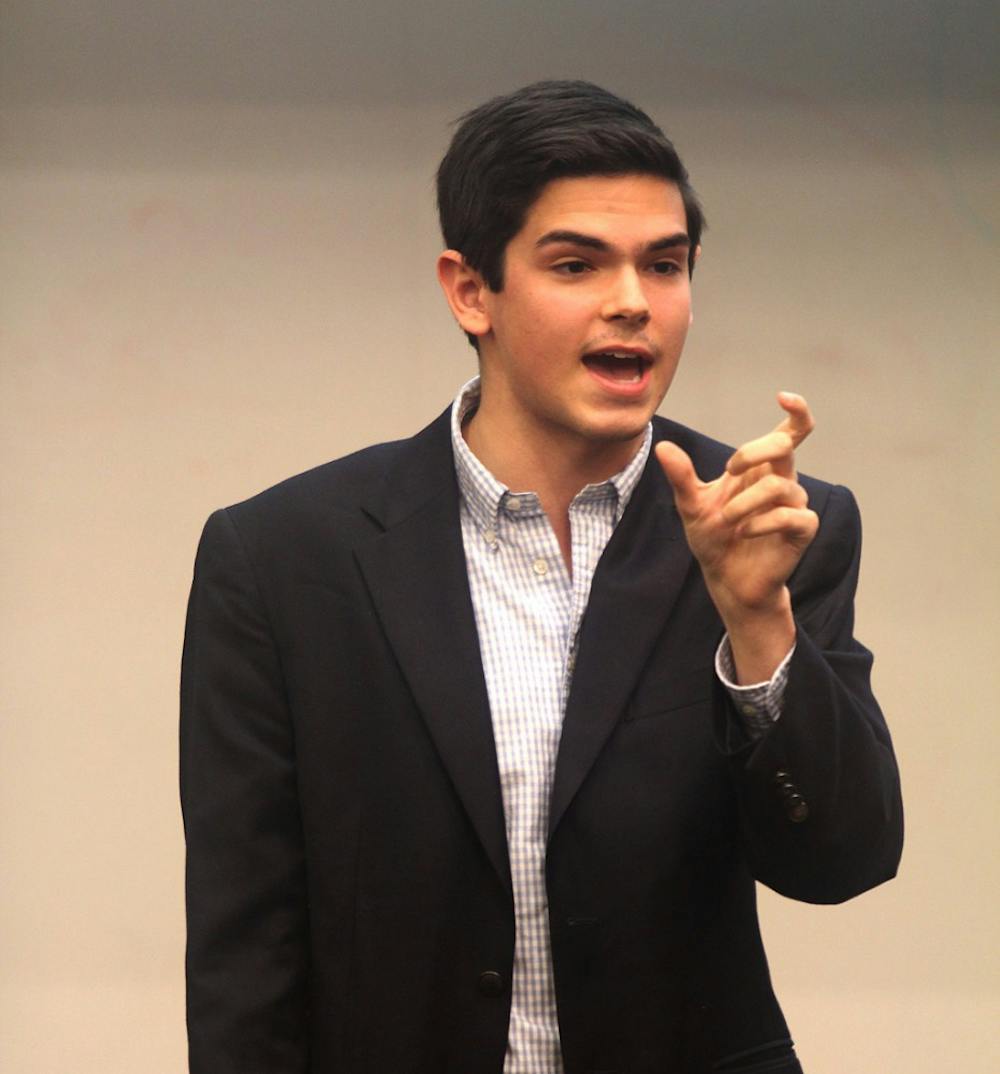Duke Student Government is considering ways for students to voice their campus concerns through tweets and texts.
After learning about the University of North Carolina at Chapel Hill’s three programs—Fix My Room, Fix My Town and Fix My Campus—sophomore Patrick Oathout, senator for athletics, services and the environment, started a similar program that allows Duke students to contribute campus alerts through social media. Junior Michael Habashi, senator for student life; junior Brett Dinner; and Oathout created a centralized Fix My Campus for Duke.
The website aggregates data from emails to fixmycampusdsg@gmail.com, any tweets with the trend #FixMyCampusDSG on Twitter and reports entered through the website fixmycampusdsg.crowdmap.com. A text message system and mobile application will soon be added to the program as well, Oathout said.
“We wanted to create an incubator in order to increase students’ ability to vocalize on their ideas and create a pipeline of those ideas that need further resources,” Dinner said.
As students use various types of social media, Fix My Campus establishes a central hub where all of their suggestions and concerns are ultimately sent and analyzed, regardless if the student submitted it via text, email, tweet, website or mobile application. The program produces a map showing the location and time of each report, and if multiple students report the same issue at a certain time, DSG can recognize the urgency of the issue.
Oathout said he recognized Duke’s need for Fix My Campus after meeting with members of UNC’s student government and learning about the organization’s programs. Back at Duke, he discovered that Dinner and Habashi had been working on a similar project in their class, PUBPOL 195S-30: “Moral Courage and Leadership” with Tony Brown, professor of the practice in the Sanford School of Public Policy.
“It’s a new outreach strategy that will help [DSG] focus less on idea generation and more on problem solving by asking students what they care about and what they want,” Oathout said. “It’s going to change how students think about issues and communicate them to DSG.”
The Fix My Campus team will focus on marketing the program this Spring, so students will begin using it soon.
“The only way it can work is if a lot of people use it,” Oathout added. “We want to start generating enthusiasm now, so that coming into the next academic year, it’s a new and exciting project that everyone’s involved in.”
With DSG now involved, Oathout, Dinner and Habashi are seeking administrative involvement by encouraging them to take advantage of the program and its data. If students voice concerns about administrative issues like curriculum, for example, the administration may recognize the issue after analyzing data.
“It will make us better problem solvers and revolutionize Duke,” Oathout said.
In other business:
Freshmen Christine Schindler and Bret Lesavoy, both senators for Durham and regional affairs, proposed a budgetary statute for a service festival where service organizations from both Duke and Durham can connect to students. A variety of small-scale, hands-on service projects at the festival will allow students to participate in civic engagement while learning more about the various organizations. The Senate approved the statute unanimously.
Freshman Sachin Sharma, who represented the DSG press secretary council at the meeting, presented the council’s idea to encourage voter turnout on East Campus. The council suggests making participation rates of freshmen a competition among freshman residence halls to encourage voting. Under 50 percent of students voted in last year’s DSG election, so the Council hopes that creating a competition will spur students to participate in the voting process.
President Pete Schork, a senior, and senior Esosa Osa, vice president for residential life and dining, presented a revised proposal of potential amendments to DSG bylaw that would restructure the organization. DSG will have a first reading of the proposed amendments next week.
Get The Chronicle straight to your inbox
Signup for our weekly newsletter. Cancel at any time.

